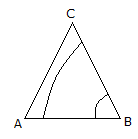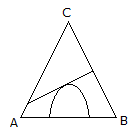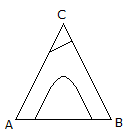Chemical Engineering :: Mass Transfer
-
Steam distillation is used for separation of high boiling
-
The feed to fractionating column is changed from saturated vapour to saturated liquid. If the separation and reflux ratio remains unchanged, the number of ideal stages will
-
Rose oil is extracted from rose leaves using __________ distillation.
-
Hypersorption refers to a __________ process.
-
Which of the following is the correct ternery diagram for liquid-liquid extraction system comprising of two pairs partly soluble (e.g., chlorobenzene-water-methyl ethyl ketone system) ?
-
Extraction of coffee from its seed is done by
-
In azeotropic mixture, the equilibrium vapour composition is
-
With lapse of time, the overhead composition of light component in case of batch distillation with constant reflux
-
Lewis number, which is important in problems involving simultaneous heat and mass transfer, is the ratio of
-
According to the film theory of mass transfer, the mass transfer co-efficient is proportional to (where, D = molecular diffusivity)


 Whatsapp
Whatsapp
 Facebook
Facebook




